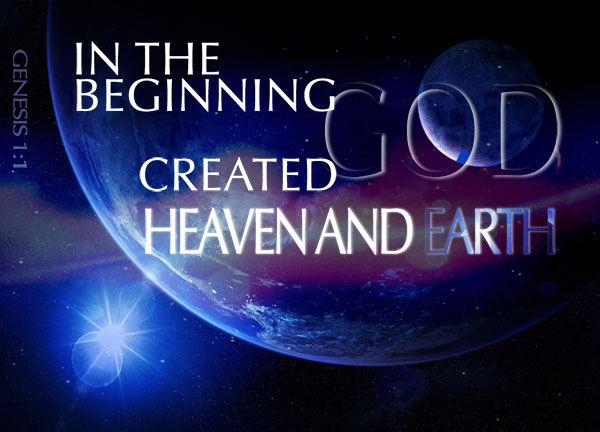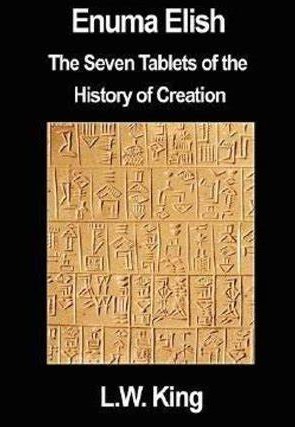Written By Lesallan – July 19, 2023

Genesis 1 and the Enuma Elish
To start this post, let me say that it is amazing and fills a person with a sense of wonder when we (as students) come across things unknown to most people today. When reading the assigned text, first the Enuma Elish (King, 2019) and then secondly John H. Walton’s article “Interactions in the Ancient Cognitive Environment” (Greer et al., 2018, p. 1), many different thoughts entered my mind. First, it made me think about “exactly how the Israelites were aware of this broader culture and how did they use it in composing the Old Testament” (Greer et al., 2018, p. 333). After reading these documents, it was evident that the early Jewish scribes were quite aware of the “Enuma Elish” (King, 2019). The thought was, did these scribes, the early writers of the Hebrew Bible, have foreknowledge of these ancient texts? Here we have a question that cannot be answered in our current day and time; Biblical scholars also have many different points of view. Throughout the above-assigned text, we find many similarities and different points of view.
So, do we who profess to believers (Christians) in the Lord Jesus Christ question what the Hebrew Bible tells us? Do we assume that the words are true or divinely inspired? Many things cannot be understood yet in this world, in our modern day. For those professing to be Christian, we walk by faith. Do we, as people, those with a lack of knowledge either assume or share that with those without a lack of knowledge? It makes me wonder how much sense is made of shared things. Should we as people express or constitute a strongly critical attack on or controversial opinion about someone or something? Nothing in the Hebrew Bible exists compared to the ancient Near East that should be considered “polemical.” There are many ways that most things can be understood.
The message conveyed in Genesis 1 is truly inspiring. It reminds us that everything we see around us has been created by God, who reigns supreme over all. The wisdom and order with which God created everything is simply astounding. We also cannot forget that man, the pinnacle of God’s creation, has been entrusted with the responsibility of ruling over this earth. It is truly humbling to realize that the one true God created all things, and that nothing else in this world can compare to His greatness.
The message in “Enuma Elish” is the ancient Babylonian creation myth. It tells the story of the great God Marduk’s victory over the forces of chaos and his establishment of order at the world’s creation (Mark, 2018). The text suggests that changes can happen in the supernatural realm that directly affects the realm of humans. It also suggests patterns for how humans should live their lives imitating the gods. The poem teaches lessons that people today can benefit from, such as avoiding emotions of selfishness and revenge.
The Enuma Elish (King, 2019) is an epic poem from ancient Babylon that tells the story of the beginning of time. The gods have an epic battle, and the hero-god Marduk triumphs over Tiamat, the goddess of salty waters, and creates the world as we know it today. It really is a fascinating creation myth that has captured the imagination of people for centuries. Genesis 1-2, on the other hand, is an account of creation according to the Hebrew Bible.
There are some similarities between the two accounts. “Both begin with temporal clauses: “when above” and “in the beginning” (Klamm, 2023). “Both God and Marduk create by giving order to chaos. Both separate primordial waters and place a barrier between the upper and lower waters. Both create luminaries to give light” (Klamm, 2023).
However, there are also significant differences between the two accounts. In Enuma Elish, creation is more about shaping chaotic matter that already exists, while in Genesis, God creates out of nothing. The creation story in Enuma Elish depicts humans as being formed from the blood of a god who was killed, whereas in Genesis, humans are said to be created in the image of God.
References:
Greer, J. S., Hilber, J. W., & Walton, J. H. (2018). Behind the scenes of the Old Testament: cultural, social, and historical contexts. Baker Academic, A Division Of Baker Publishing Group.
King, L. W. (2019). ENUMA ELISH. Sacred-Texts.com. https://www.sacred-texts.com/ane/enuma.htm
Klamm, K. (2023). Enuma Elish and the Bible. Bible Odyssey. https://wwww.bibleodyssey.org/passages/related-articles/enuma-elish-and-the-bible/#:~:text=The%20Enuma%20Elish%20resembles%20a%20few%20parts%20of
Mark, J. (2018, May 4). Enuma Elish – The Babylonian Epic of Creation – Full Text. World History Encyclopedia. https://www.worldhistory.org/article/225/enuma-elish—the-babylonian-epic-of-creation—fu/



